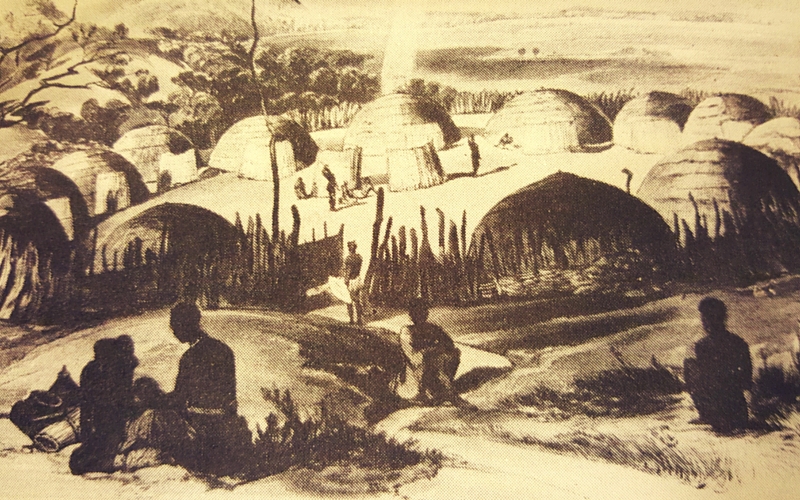In 18th century South Africa, there were mainly two groups of people who were readily identified by the languages they spoke: the Sotho and Nguni. The Sotho language was spoken by the northern Sotho or Pedi, the southern Sotho and the western Sotho or Tswana. The Nguni language was spoken by the southern Nguni or Xhosa and the northern Nguni.
The Nguni in the north were farmers who grew millet, sorghum, vegetables, and were cattle breeders. The Nguni lived in separate homesteads of between five and 40 houses. The houses were dome shaped and made of poles covered by grass. The head of household lived in the middle of the homestead followed by the wives in order of their rank to make a ring.
Each homestead would grow its own food. The homestead belonged to a chiefdom, which belonged to a lineage. The chiefdoms were typically small, and made up of only a few thousand people. The chiefs were responsible for settling disputes between people, enforcing punishment for wrongdoers, and organizing protection of farming and grazing lands.
By the end of the 18th century, rainfall decreased throughout the area, land became infertile and grazing lands were inadequate for their needs so they began to reorganize. The smaller chiefdoms merged to form bigger chiefdoms so they could control land and cattle more efficiently.
One such chiefdom was one under Dingiswayo who led the Mthethwa. Under his chiefdom, he abolished circumcision and ordered the young men to form hunting parties known as amabutho. All the young men in the ibutho lived together in their own settlement, worked the lands for the chief, grew crops, herded and protected his cattle. The young men in the ibutho could not marry or start their own families as long as they were part of the regimen. After leaving the group, the chief would allocate land and cattle to them and then they were free to marry and start their own families. This caused many drastic changes to Nguni society. Gradually, the chief consolidated power as he could decide when someone could marry, how land was used and where people could graze their cattle.
The amabutho became a very powerful army for the chiefdom. They made the kingdom wealthy by raiding cattle during wars. The soldiers used the assegai, a short stabbing spear which increased casualties during war unlike the traditionally used long spear. They were also not allowed to wear sandals so they could run faster and cover longer distances. Joining the ibutho became a source of pride as the young men could later have important positions in the kingdom.
The Mthethwa were ruled by Dingiswayo who appointed Shaka as head of one of his armies. After Dingiswayo was killed in 1818, the Mthethwa became part of the Zulu state.





2 responses to “The Nguni State Under Dingiswayo”
So how come people only celebrate Shaka when Dingiswayo brilliantly organized what we now know as city states with an organized military?
shaka was a warlord, having high capacity to solve desputes against colonists.